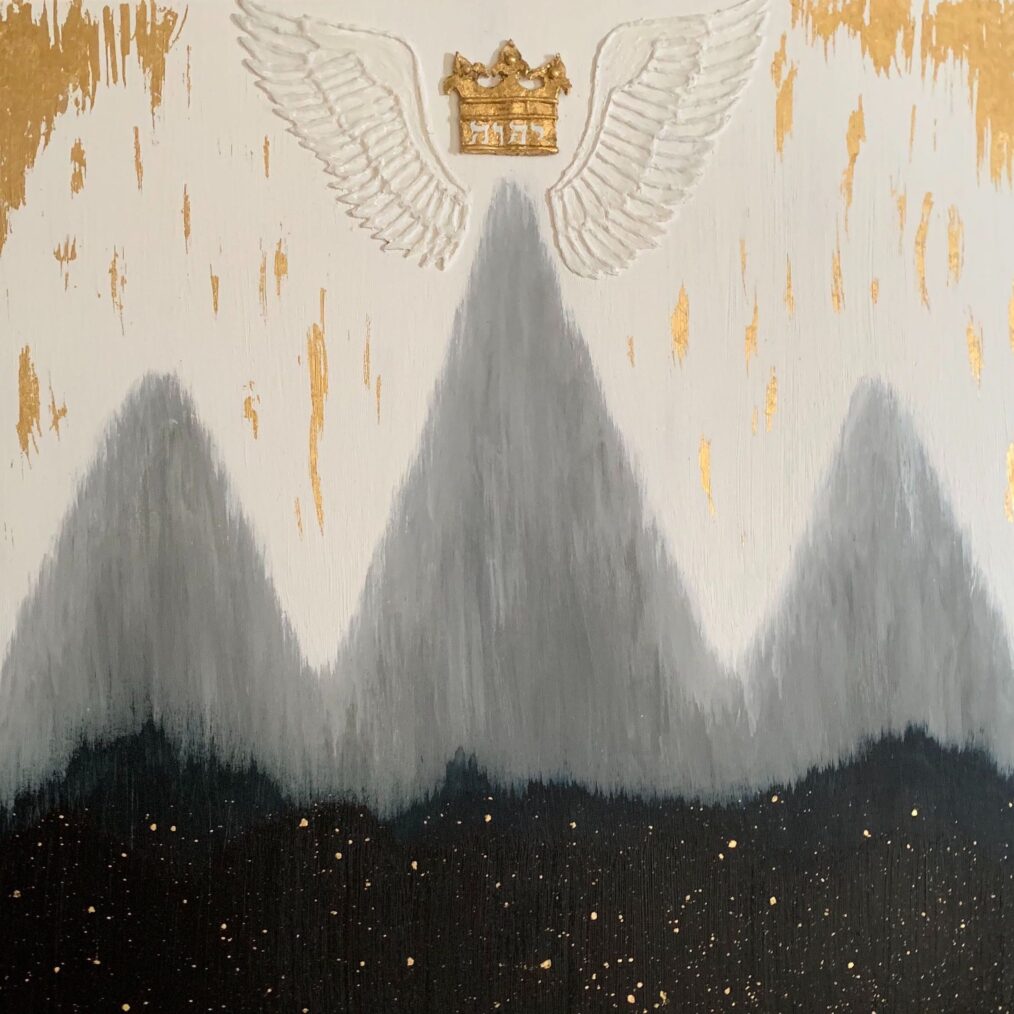Our fourth and final weekly practice for this year’s season of Advent is called listening prayer. This practice can be integrated into your regular times of prayer or last week’s practice of the Daily Office.
Depending on your background, the term “listening prayer” may seem like an oxymoron. If prayer is, by simple definition, conversation and communion with God, then it will naturally have elements of both speaking and listening. However, many of us in our faith journey have stumbled into an understanding (at least behaviorally) that prayer is primarily about us speaking; about us
asking for things. We pray when we’re in need. We ask God for health, safety or protection. Perhaps we remember to thank Him for something once in a while. And yet, that’s not how conversation or communion works—we see this in Scripture and we know this from our interpersonal relationships.
Think of your closest relationships with other people. When you grab coffee or lunch with a good friend, there will be ebbs and flows in the conversation. Give and take. Speaking and listening. Yes, some conversations will be lopsided, but in order to know and be known (communion), there must be elements of both. We all have
that friend that never asks a single question. That’s called a monologue, not a conversation. (And, if you’re not sure who that friend is, you might just be that friend).
If our Christian faith is not so much a “religion as it is a relationship” (as we’ve loved to say), then why would we treat our relationship with God so differently than our human relationships? Why would we default to one-way conversations where we dump our list of requests on Him and then quickly move on? Try that in a dating relationship and see how it goes.
What if our goal in prayer was communion? To be known
and to know? What if we could hear and know the voice of God in addition to our voices toward Him?
Jesus seems to assume that all of His disciples will hear and know the voice of God. In John 10, He says, “My sheep hear my voice, and I know them, and they follow me” (v. 27). Like sheep who hear and follow the voice of their shepherd, we have been given access as Christians to be able to hear and follow the voice of Jesus. He affirms: “I am the good shepherd. I know my own and my own know me” (v. 14).
These words from Jesus aren’t an anomaly in the Bible. Throughout the entirety of Scripture, from Adam and Eve in Eden (Gen. 3) to prophecies for the coming of the Spirit (Joel 2), to the early church (Acts 11, Acts 21, 1 Corinthians 14), we see the ability of the people of God to hear and understand the voice of God. Some audibly hear a voice; others have dreams, prophetic words, divine insight, wisdom, leadings or promptings.
Obviously, God has also graciously given us the ability to hear from Him directly by reading the Bible. Scripture is the authoritative Word of God, and by reading it we have the opportunity to listen to Him. And yet we’re also called to abide and communicate with God Himself (John 15). Jesus told His disciples that the Holy Spirit will “teach you all things and bring to your remembrance all that I have said to you” (John 14:26). We can fully trust the Word of God and still listen for the Holy Spirit to speak to us today in our various contexts.
What if the Spirit of God wants us to teach us or remind us of something today? What if God is speaking more often than we realize? What if we sometimes miss His voice by filling our lives with distraction and noise? What would He say if we slowed down and asked Him to speak?
We have before us an invitation to slow down, stop talking, and actually listen. Like Week One’s practice of the prayer of silence, it takes a lot of intentionality in our day to spend time listening for God’s voice. Read on for some practical application and tips for listening as individuals, households, and Gospel Communities:
INDIVIDUALS
While this practice may feel foreign or difficult to engage with at first, the concept is as simple as it sounds:
listening prayer is about stopping, quieting our hearts (and often our surroundings), and listening for God’s kind voice.
Like other spiritual disciplines, it’s helpful to make a plan to incorporate it into your life—especially if your default disposition in prayer is to “monologue.” If you’re already engaging with prayer during the day or the Daily Office this season, a simple place to start is to
devote five minutes of that prayer time to listening. It can be helpful to begin by reading a portion of Scripture or a Psalm before quieting down. Then, pray that God would silence any noise or competing voices. Next, ask Him a simple question like, “Father, is there anything you’d like to speak to me right now?”
At this point, begin to spend time listening and paying attention to what’s brought to mind. If it’s clearly a distracted or contrived thought, simply release that thought to God and return your attention to listening to Him. Your laundry can wait, that text message isn’t
that important, and so on. Give yourself grace for distraction—that’s normal. If you think you’re hearing something from God, you may want to write it down in a journal. He may remind you of a Scripture or song, give you an encouragement for yourself or someone else, give you an image or a vision of something, etc. He is creative and will choose how He wants to speak to you. However, settle it in your heart beforehand that even if you don’t hear something specific, silence before God in His presence is always time well spent!
Most of us who are less familiar with this practice will be asking the question, “how do I know if I’m hearing from God or just making something up?” This can certainly be a genuine and difficult question to answer, but we have a few guidelines that can help us discern between God’s voice and other voices. 1 Thessalonians 5:19-22 calls us to not despise prophetic utterances (words from God spoken through people), but rather, we are to examine everything; to hold on to what is good and to run from what is evil and wrong.
Here are some questions we can ask to examine what we think we’ve heard from God:
- Does this align with Scripture? God’s voice will never contradict what He has already spoken in His written Word. If you’re not sure if it’s Scriptural, spend time studying the Bible and bring trusted friends or pastors into what you think you’ve heard.
- Did I hear clearly or was it just an impression? We have to remain humble as we discern whether we heard from God or not. He may be speaking clearly, but we often hear or interpret imperfectly.
- Does this build up in encouragement and love, or tear down and condemn? Does it point to Jesus? Does it lead us to love God and love others more? While the Spirit of God will sometimes convict us of sin, there is no more condemnation for us if we’re children of God, because of the work of Christ (Romans 8). The voice of God won’t cover you in shame or tear anyone down.
- Does this align with my experience or the experience of those involved? If it doesn’t align with reality, it isn’t God’s voice. For example, if you think He revealed someone else’s middle name, and it turns out to be incorrect, clearly it wasn’t something God spoke.
- If I think I’ve heard something that predicts a future event or circumstance, does it come to pass? God’s voice is never wrong. Throughout history, He has sometimes provided divine insight into future occurrences. This may seem obvious, but if we sense something of the future, and it doesn’t come to pass, it wasn’t originally from God.
A few words of caution: We recognize this practice comes with an immense potential for misuse, abuse, and harm. Many have heard or experienced grave stories of those who have said, “God told me…” that have led to personal, interpersonal, or corporate injury. It’s
extremely important to examine what you’ve heard through the lenses above and to remain humble by recognizing your own imperfect ability to hear. Especially if what you’re hearing carries any kind of significant weight (a major life decision, etc.), make sure to ask a trusted group of Christian friends or a pastor/elder to help you discern what you’ve heard. Humbly allow the Holy Spirit inside them to guide you toward what is true and life-giving.
Furthermore, if you think you heard God speaking something
for someone else, use an extra amount of caution before sharing with that person. Work through the questions above before sharing. If it seems to line up with the heart of God, you might humbly say something like, “I’ve been practicing listening to God’s voice, and I don’t know if this is from Him or not, but I think He wanted to encourage you with something—would you mind if I shared?” It’s imperative that your aim is to humbly love the other person. If the encouragement doesn’t seem to resonate with that person, that’s okay! Graciously admit your own imperfection, and move on. Moments like these are opportunities to take risks of faith, while owning our weakness and sharing that our goal is to love God and love others well.
Note: It’s almost never a good idea to make predictions to others about weighty matters like births, deaths, or relationships beginning and ending. If you think God has shared that information with you, hold on to those things privately and maybe write them in a journal. Hold them with open hands. If the event does indeed come to pass, praise God and thank Him for revealing something to you.
Despite its potential for harm, this practice also has incredible potential for encouragement, edification, and faith-building. Sometimes it is worth humbly and graciously taking a risk to see what God might do in and through you. Continue to give yourself grace and put energy into practicing listening prayer. God is a kind Father who loves speaking to His children!
Finally, keep in mind that in these potentially subjective waters, our true and final confidence in never in a particular word someone may have shared with us but rather the God who spoke the word. Be wary of clinging to words more than to the Word Himself. We should be those who cling tightly to Him and know He will fulfill the things He promised (if He indeed did)!
Questions for individuals to consider before listening:
- How often do I make time to listen in my conversations with God?
- When might I utilize listening prayer this week?
- Who can I invite to help me discern if what I hear is from God?
Questions for individuals to ask God while listening:
- Is there anything You want to say to me?
- Are there any Scriptures You’d like to remind me of?
- Is there anyone You’d like me to encourage today?
- What are Your thoughts toward me?
- Is there anything You’d to direct my attention toward?
- Is there any sin You’d like to convict me of?
- Is there anywhere You’d like me to go today?
Pray through this week’s confession of sin here.
HOUSEHOLDS
Families, begin as parents by reading through the “Individuals” section above. Talk to your kids about how prayer is like having a conversation with God. When you talk with someone there are times when you listen and times when you talk. The same is true in prayer with God—He has things to say to us too, but sometimes we don’t take the time to stop and listen. Tell your kids that you are going to practice listening in prayer. Then pray something simple like, “God, thank you for always listening to me when I pray. I want to hear what You have to say, too.” Sit with your kids and listen. After a few moments (or minutes depending on your child’s age and attention span) ask them what they hear God saying. You may want to give them some blank paper to draw or write down what they hear God saying. Sometimes the Holy Spirit will say profound things even to little children! If possible, guide them through some of the questions above that help us tell if it really is God speaking to us. Feel free to use some of the questions below for discussion or prayer time together as well.
For spouses and housemates, read through the “Individuals” section above and consider practicing listening prayer together. Doing this together is a great way to grow in hearing the voice of God. Ask God to speak to you, then spend five minutes in silence together. At the end, share what you heard, what you were reminded of, or what impressions you had. Walk through the questions above to discern if something you hear is from God or not. Use the questions below to guide discussion or prayer time together:
Options of questions for kids and families to consider:
- What is listening prayer?
- Why is it important to listen and not just talk to God?
- How can we listen to God?
- How do we know if it’s God talking to us?
Questions for families to ask God before listening:
- Is there anything You want to say to us?
- Is there anyone You want me to encourage today?
- Is there anything You want me to remember today?
Questions for housemates or spouses to consider:
- What objections (if any) do we have to listening prayer?
- What experience do we have with listening prayer?
- What keeps us from listening for God’s voice?
- How might we engage with this practice together?
Questions for housemates or spouses to ask God before listening:
- Is there anything You want to say to us?
- Is there anything You want me to encourage [my spouse or roommate] with?
- Is there anyone You want to encourage together today?
- What are Your thoughts toward me/us today?
GOSPEL COMMUNITIES
Before meeting, read through the introduction and the the “Individuals” section above.
Read
Luke 2:22-38 together and ask someone in the group to recap the sermon from Sunday. Consider asking some of the questions outlined below, and use this blog post as a reference as questions come up.
Halfway through your time, take time to practice listening prayer together. You may choose to do this as a whole group, or perhaps in smaller groups of 3-4. Go over the questions listed above for discerning if it is God speaking to us or not. Remind your group that even if they don’t hear anything, silence before God in His presence is time well spent. Once you’ve discussed those things, encourage people to ask God a generic question like, “Is there anything you’d like to speak to me, for my benefit or the benefit of others?” Listen for five minutes. Afterward, begin to share what the experience was like and what you think you may have heard. Discern together what may have been from the Lord. Encourage honesty, risk, and humility.
End your time together in (spoken) prayer.
Questions for Gospel Communities
- What struck you this week about the life of Anna in Luke 2:36-38? Anything different than the last two weeks?
- What was compelling, convicting, or challenging about the sermon from Sunday?
- What is listening prayer?
- What is difficult about listening prayer?
- What has been your experience with this practice?
- Why do we sometimes avoid listening to God?
- How can we know if God is speaking?
- How can we approach listening prayer with humility?
- What are humble and gracious ways to share what we think we may have heard from God with others?

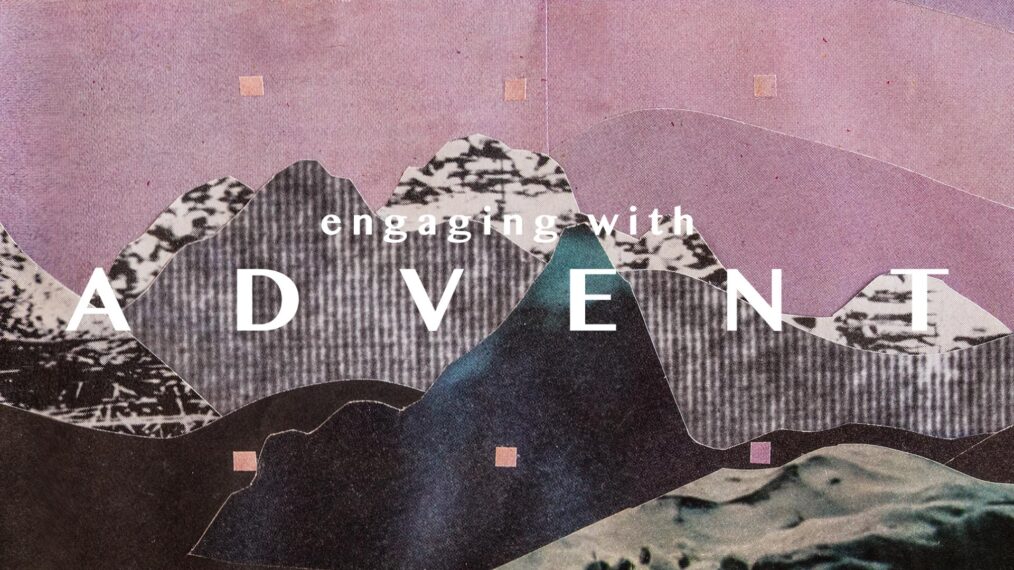

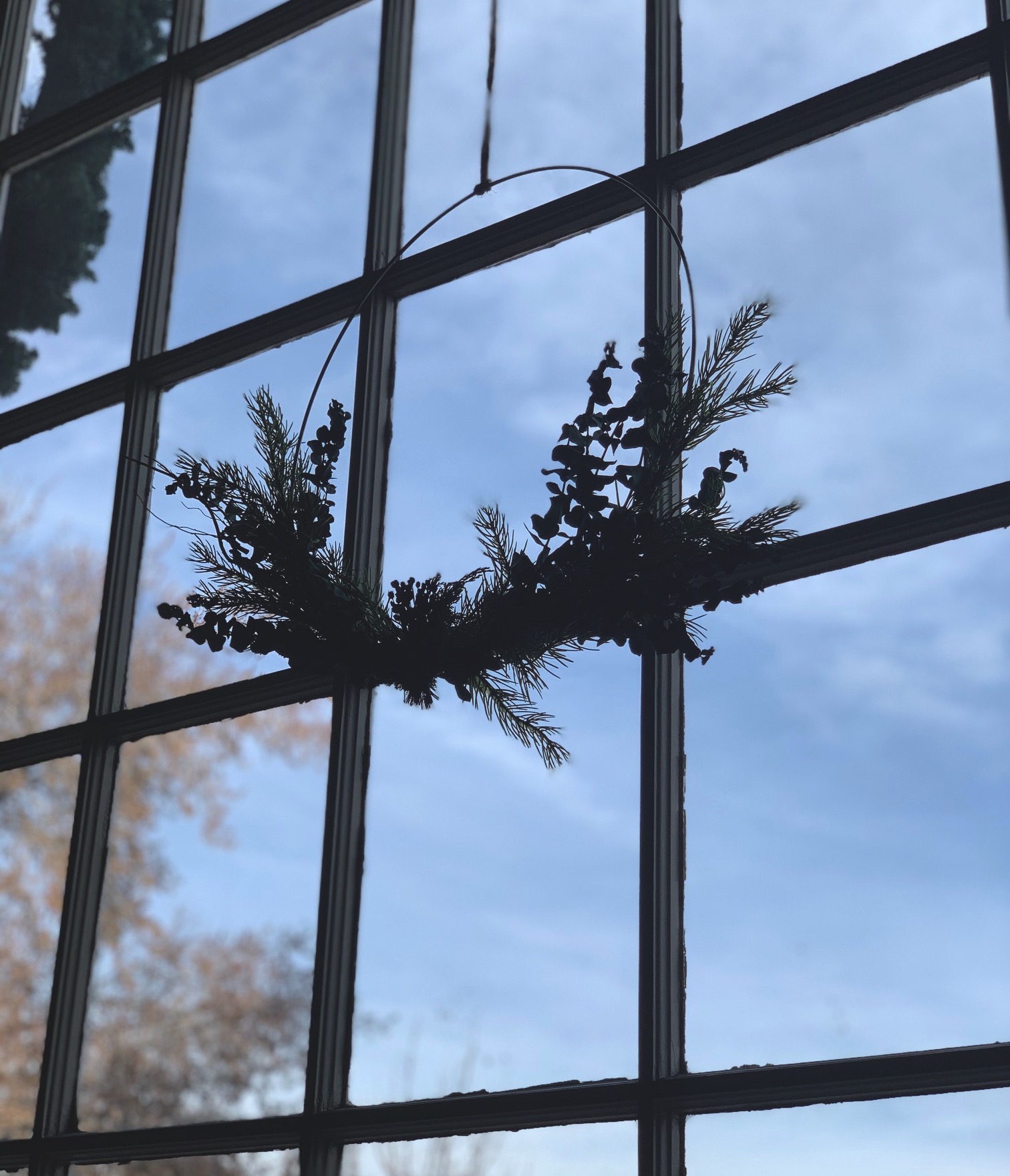
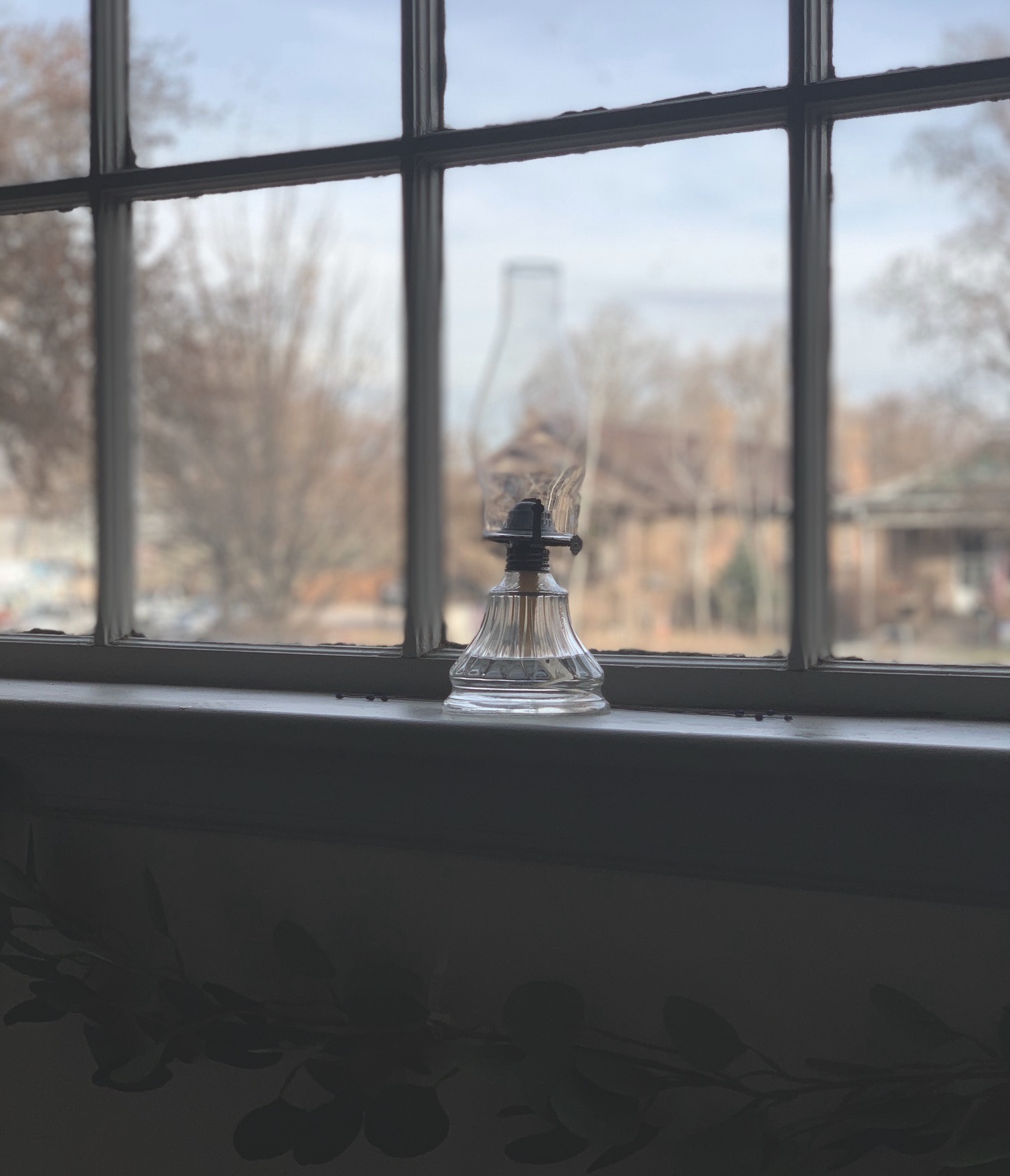
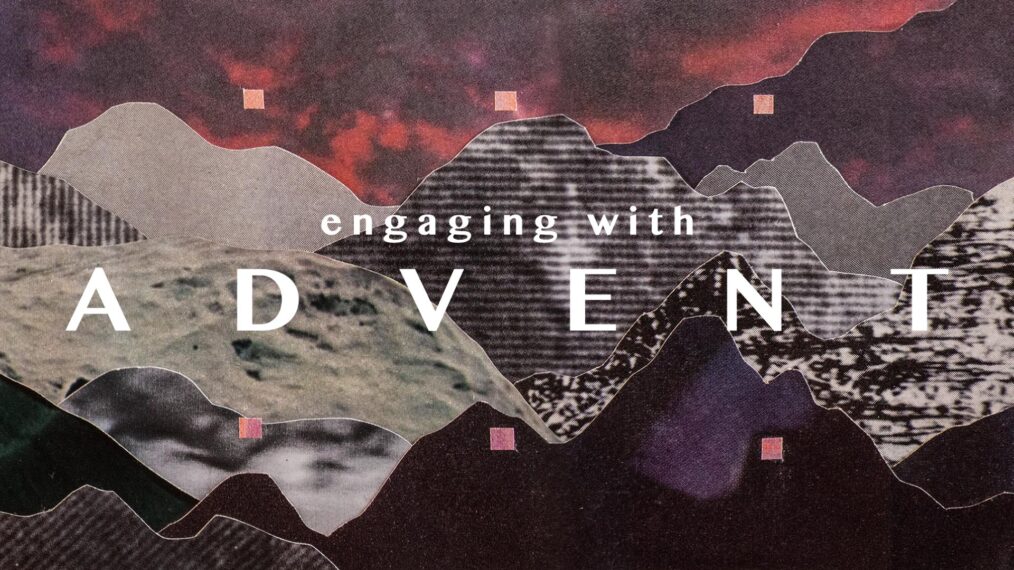
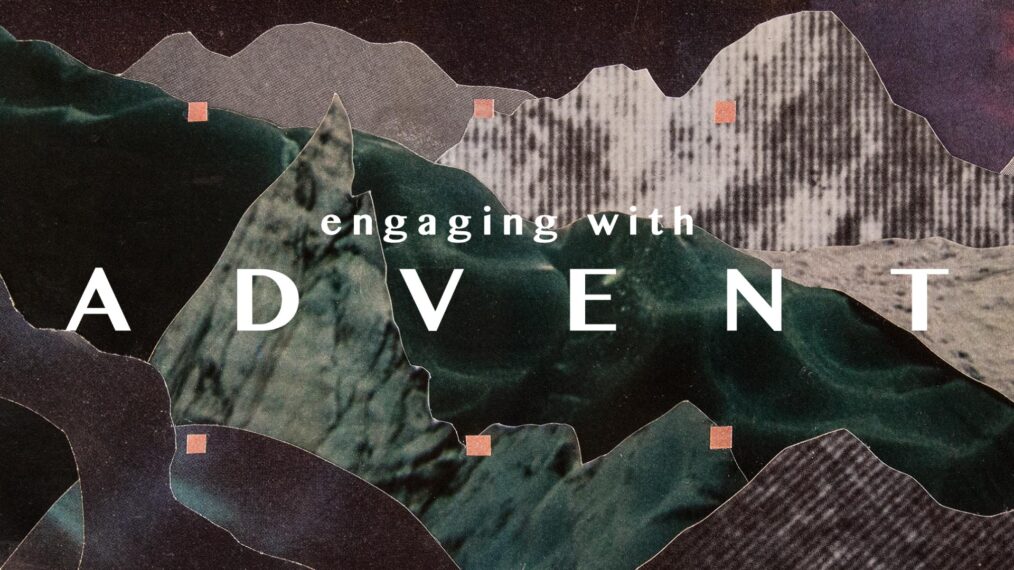
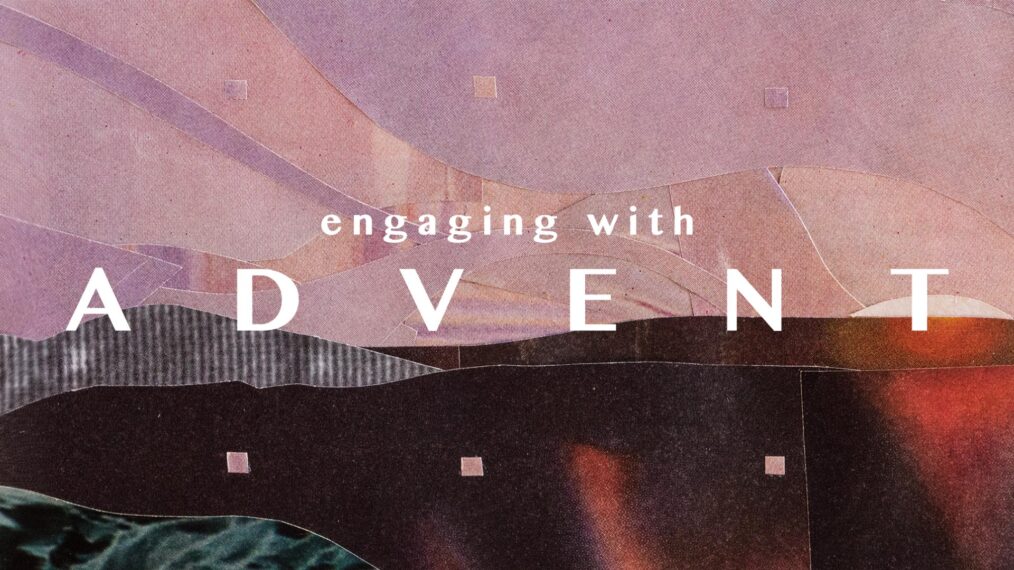







 In another early concept, I envisioned cracks and a shattered pattern getting less and less cracked -the color getting brighter and brighter as the collage progressed. U;timately, I felt like it was—again—less robust of an idea, and cracks don’t really “heal themselves.” It’s difficult to express that idea, even though I liked the graphic potential of it.
In another early concept, I envisioned cracks and a shattered pattern getting less and less cracked -the color getting brighter and brighter as the collage progressed. U;timately, I felt like it was—again—less robust of an idea, and cracks don’t really “heal themselves.” It’s difficult to express that idea, even though I liked the graphic potential of it.
 Lastly, an image of the final collage in-process, before I added the pink squares. The squares sort of came to symbolize markers in the passage of time, little ebeneezers if you will.
Lastly, an image of the final collage in-process, before I added the pink squares. The squares sort of came to symbolize markers in the passage of time, little ebeneezers if you will.

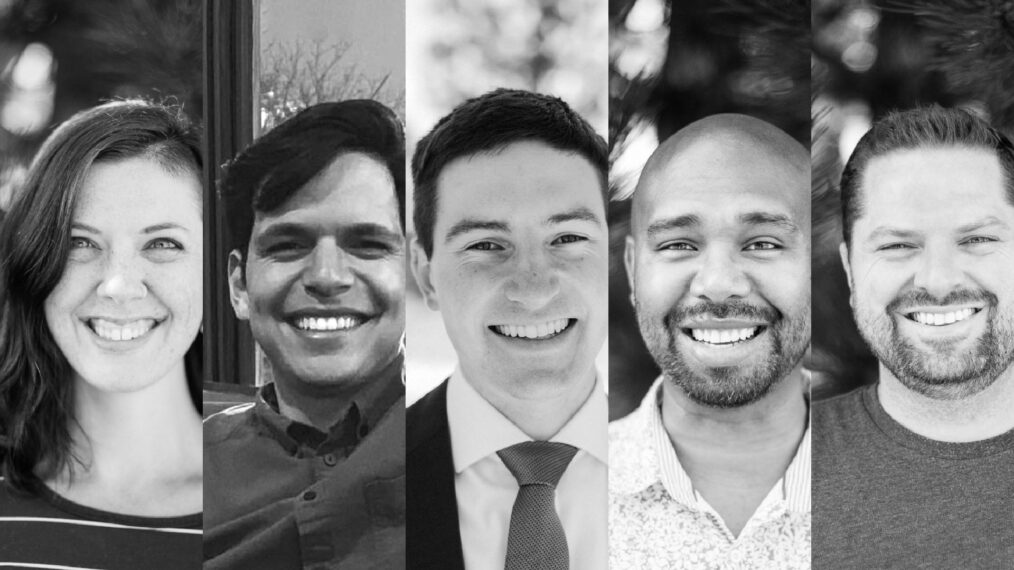
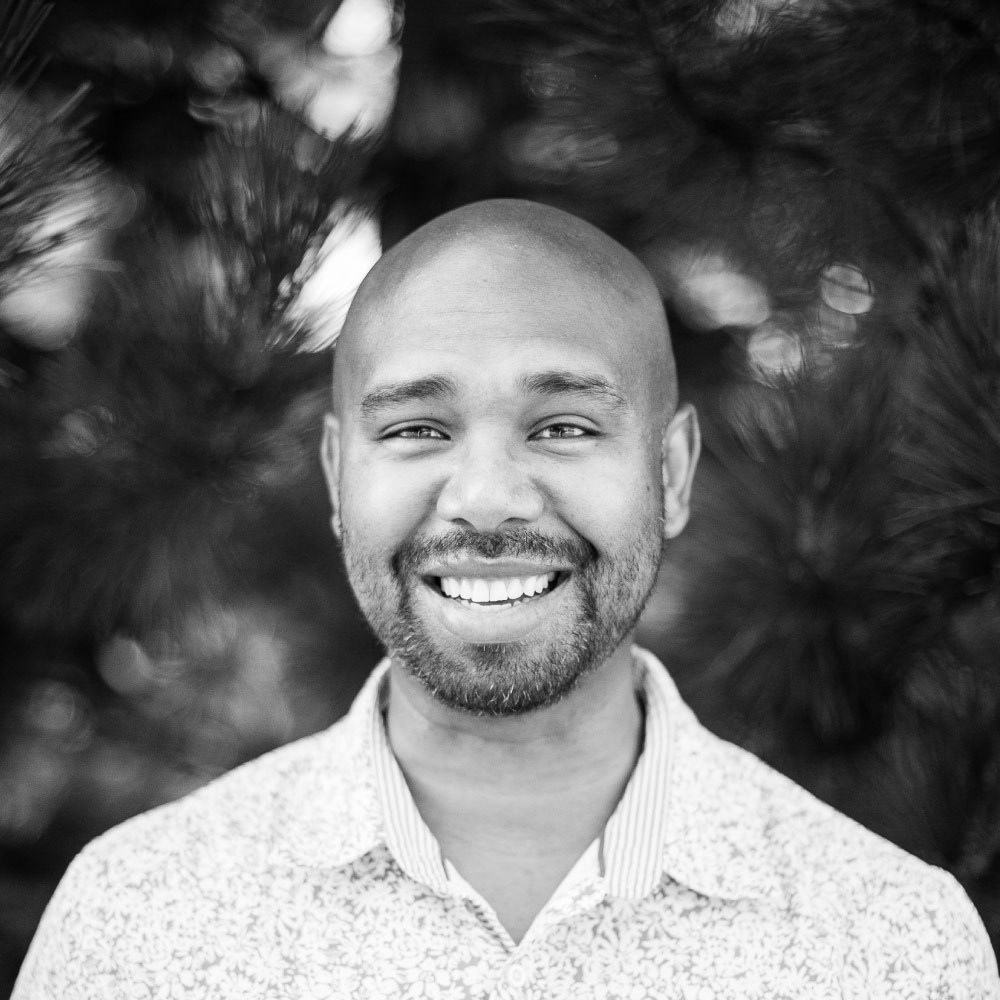 I’m a husband-in-training to Jerusalem and a gushing father to Selah, both an Air Force brat and veteran, and discipleship is my jam. On the Enneagram, I’m a 7 (Enthusiast) with an 8 wing (Challenger). I love all things related to culture (especially food, travel and language), was a Human Resources Business Partner in my last role, an alumnus of Colorado Christian University, a performing arts junky, and I serve on the board for the Issachar Center for Urban Leadership. Fun Fact: I’ve never experienced a brain freeze!
I’m a husband-in-training to Jerusalem and a gushing father to Selah, both an Air Force brat and veteran, and discipleship is my jam. On the Enneagram, I’m a 7 (Enthusiast) with an 8 wing (Challenger). I love all things related to culture (especially food, travel and language), was a Human Resources Business Partner in my last role, an alumnus of Colorado Christian University, a performing arts junky, and I serve on the board for the Issachar Center for Urban Leadership. Fun Fact: I’ve never experienced a brain freeze!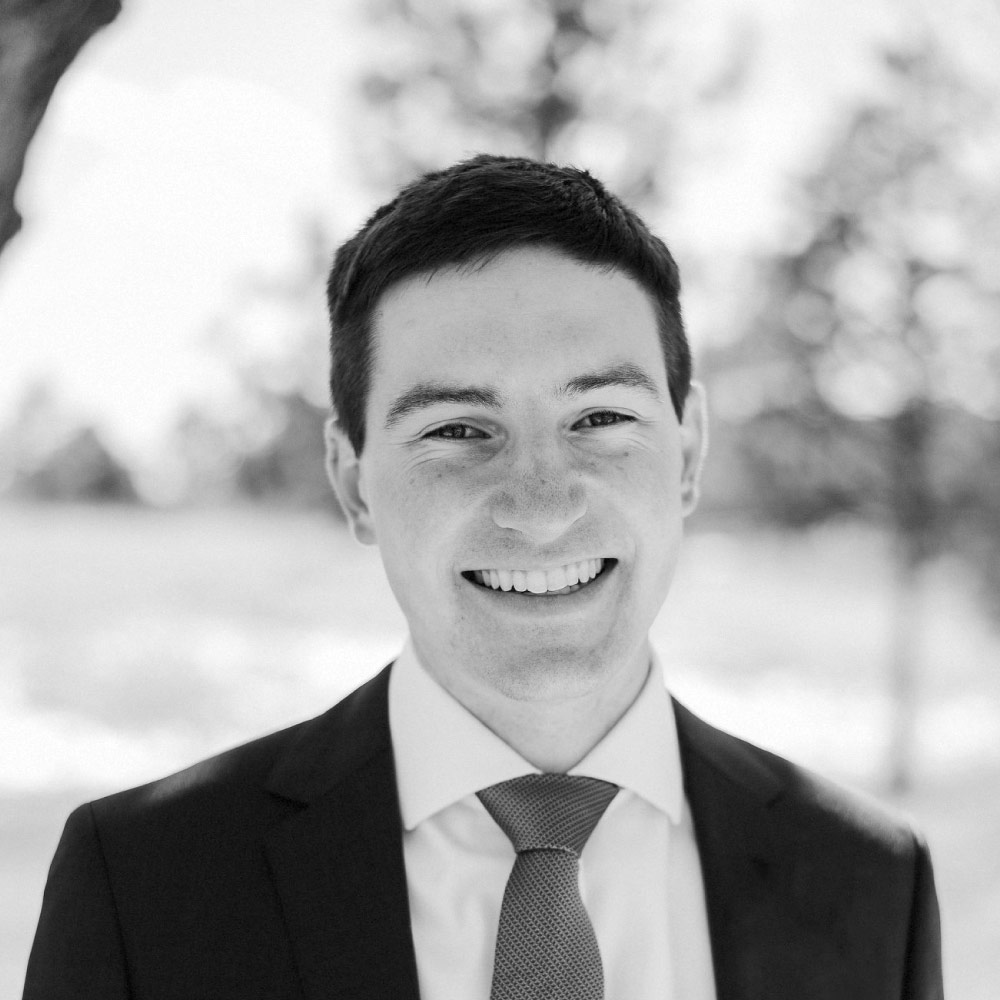 I love journeying through life with my wife and best friend, Erica. We live in the Athmar Park neighborhood and spend our time exploring the mountains and hanging out with friends around Denver. I grew up in a suburb of San Francisco and graduated from Notre Dame. I’m thankful we don’t have to suffer through midwest winters living in Denver. In my previous role, I worked to help patients with chronic illness live healthier lives. I have a passion for building and creating both relationships and organizations that help people grow. My hidden talent is that I’m decent at making pottery and always looking for an excuse to practice and get better.
I love journeying through life with my wife and best friend, Erica. We live in the Athmar Park neighborhood and spend our time exploring the mountains and hanging out with friends around Denver. I grew up in a suburb of San Francisco and graduated from Notre Dame. I’m thankful we don’t have to suffer through midwest winters living in Denver. In my previous role, I worked to help patients with chronic illness live healthier lives. I have a passion for building and creating both relationships and organizations that help people grow. My hidden talent is that I’m decent at making pottery and always looking for an excuse to practice and get better.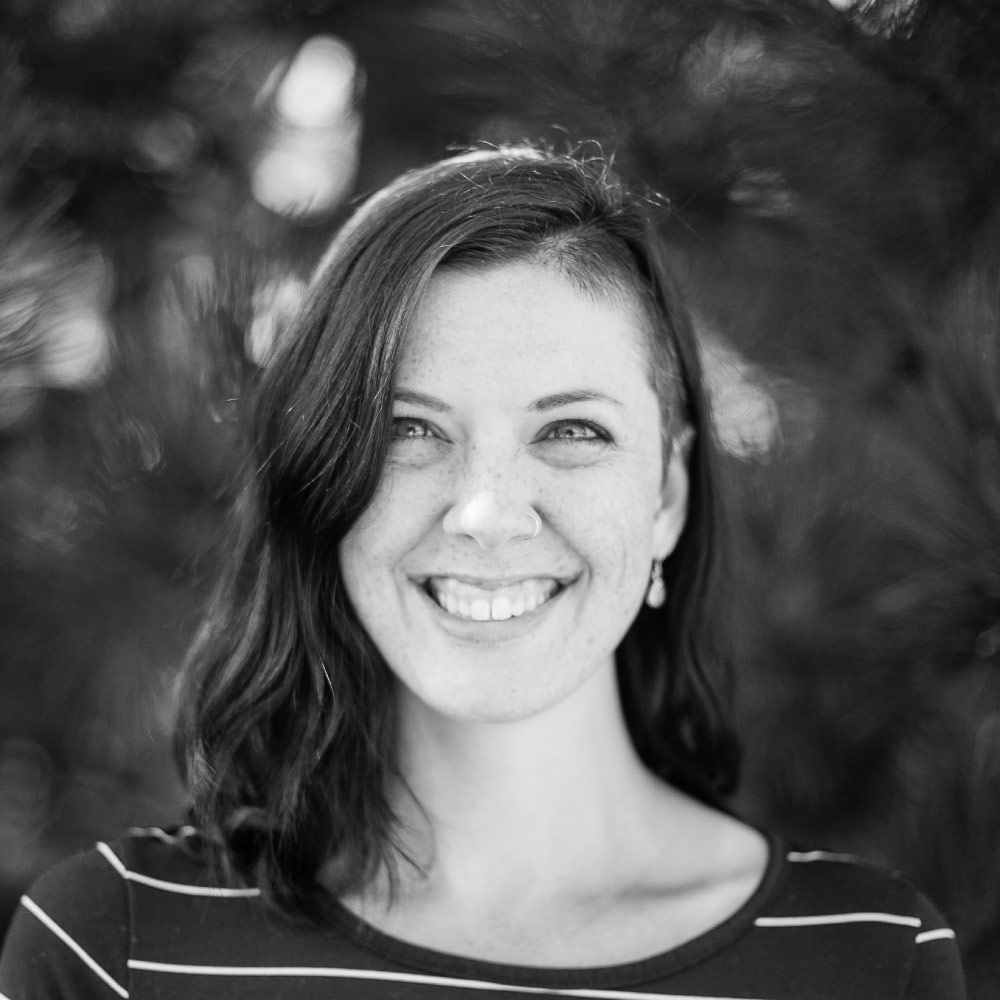 My name is Margie, and I’m the new office manager and Community and Formation admin! I have attended Park since I moved to Denver in June of 2018 and I’m delighted to have a place on staff. A couple of fun facts about me: I was born and raised in Vermont (although I haven’t lived there in a long time), I love to travel internationally, and I can almost always be found with a cup of coffee close at hand. Looking forward to ministering alongside you all!
My name is Margie, and I’m the new office manager and Community and Formation admin! I have attended Park since I moved to Denver in June of 2018 and I’m delighted to have a place on staff. A couple of fun facts about me: I was born and raised in Vermont (although I haven’t lived there in a long time), I love to travel internationally, and I can almost always be found with a cup of coffee close at hand. Looking forward to ministering alongside you all!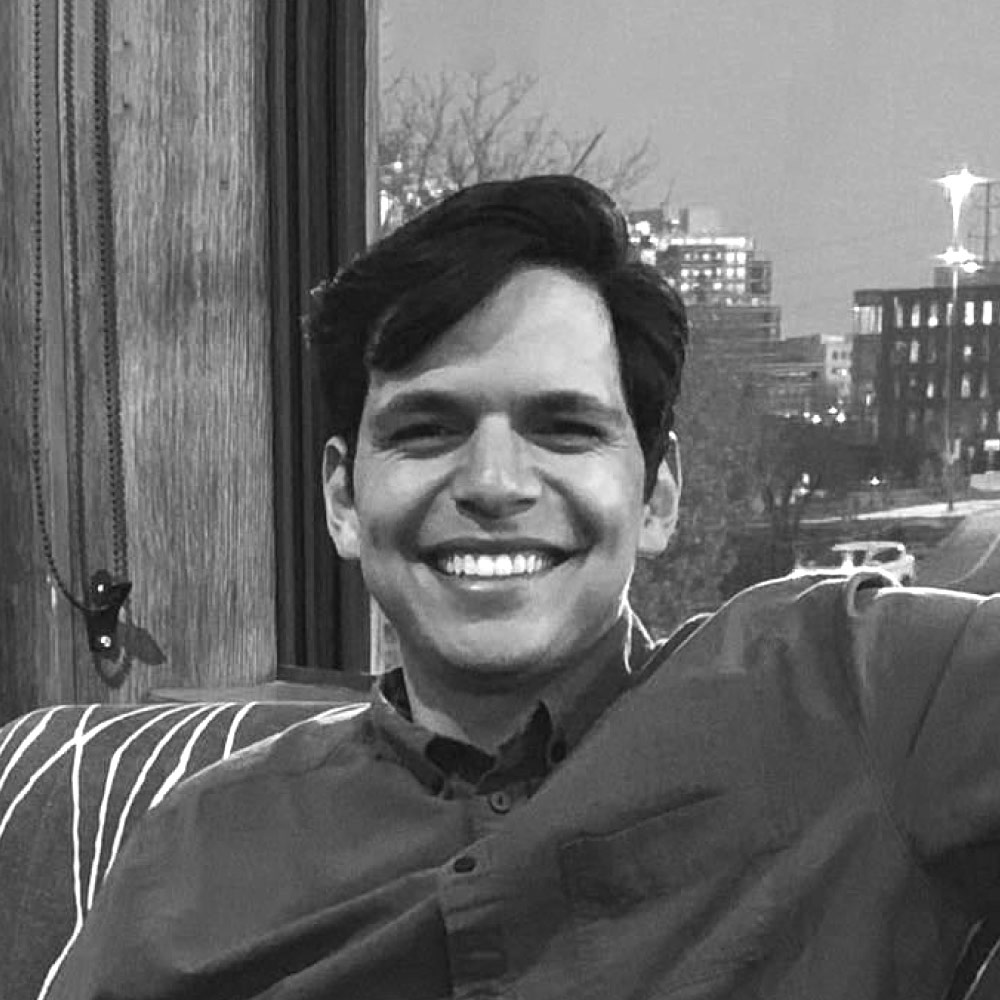 Hey, my name is Josh and I was hired as the Connection Coordinator at Park and I am pumped to engage new congregants into the life of the Church! When I’m not at work, I’m usually found with a nice book, a cup of coffee and an itch to get outside. I look forward to what is to come!
Hey, my name is Josh and I was hired as the Connection Coordinator at Park and I am pumped to engage new congregants into the life of the Church! When I’m not at work, I’m usually found with a nice book, a cup of coffee and an itch to get outside. I look forward to what is to come!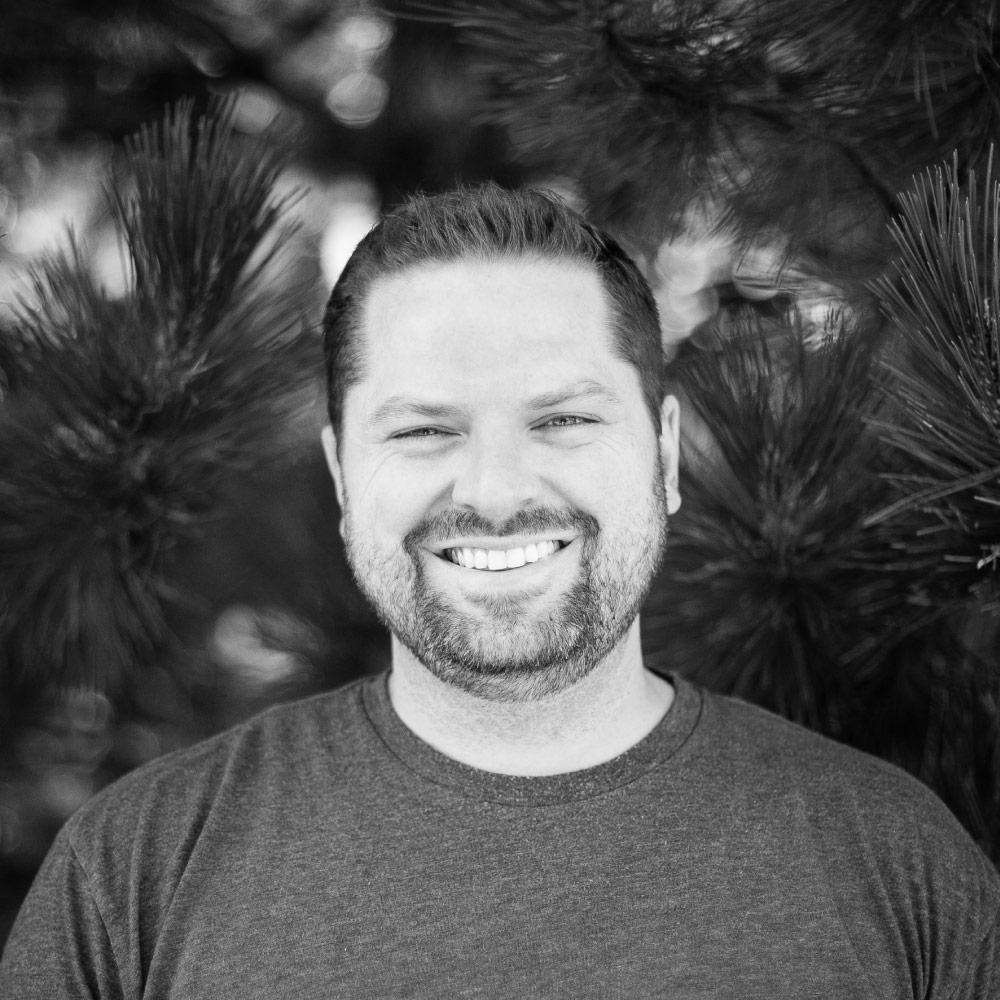 Hey all! My name is Zach Foster and I’m excited to be the new Park Teens Coordinator! I am a Denver native who came to know Jesus while on a mission trip to Juarez, Mexico my freshman year of high school. Ever since, I have been passionate about revealing the beauty of Christ to teenagers just as my youth pastors did for me. I believe that winning our youth to Christ is crucially strategic for growing the Church and making a greater impact for the Kingdom in our city and our world. I am currently pursuing my Masters of Divinity with a concentration in Leadership at Denver Seminary. Important things you should know about me: 1) I love the Denver Broncos, Chipotle, Parks & Rec, and Nacho Libre a little too much. 2) My spirit animal is a combination of Jack Black and Ron Swanson. 3) As a part-time handyman, I can fix anything, except a broken heart. I look forward to getting to know you all in in the coming months and years!
Hey all! My name is Zach Foster and I’m excited to be the new Park Teens Coordinator! I am a Denver native who came to know Jesus while on a mission trip to Juarez, Mexico my freshman year of high school. Ever since, I have been passionate about revealing the beauty of Christ to teenagers just as my youth pastors did for me. I believe that winning our youth to Christ is crucially strategic for growing the Church and making a greater impact for the Kingdom in our city and our world. I am currently pursuing my Masters of Divinity with a concentration in Leadership at Denver Seminary. Important things you should know about me: 1) I love the Denver Broncos, Chipotle, Parks & Rec, and Nacho Libre a little too much. 2) My spirit animal is a combination of Jack Black and Ron Swanson. 3) As a part-time handyman, I can fix anything, except a broken heart. I look forward to getting to know you all in in the coming months and years!